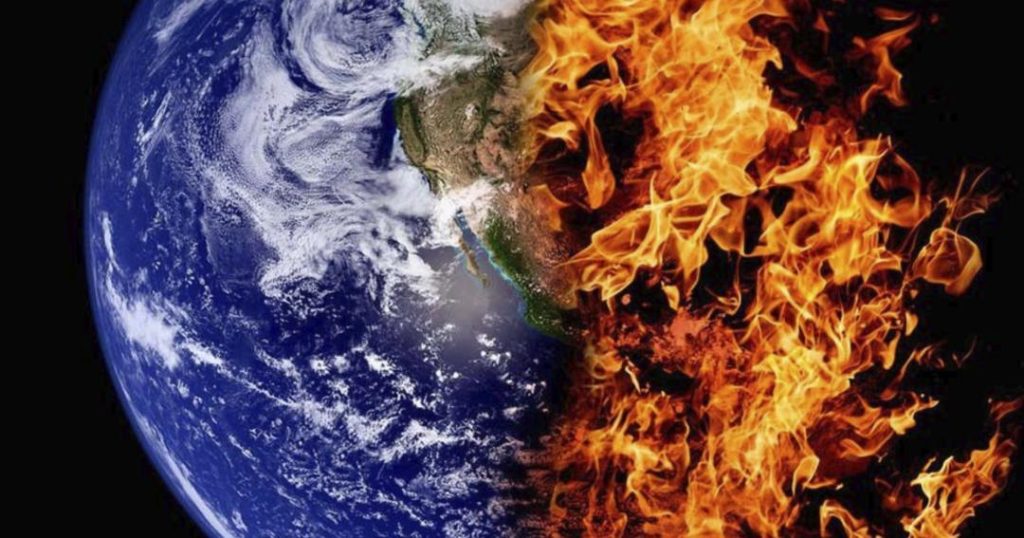
NASA, Japan Warn Earth May be Uninhabitable in a Billion Years
A chilling prediction has been made by NASA and Japanese scientists, warning that Earth may become uninhabitable by the year 1,000,002,021 due to the Sun’s gradual increase in temperature. According to experts, this catastrophic event is not only a distant possibility but an inevitable outcome, with the process already underway. The alarming forecast serves as a stark reminder of the urgent need for action to mitigate the effects of climate change and the necessity of developing a backup plan for humanity’s survival.
As we navigate the complexities of climate change, it’s essential to consider the long-term implications of our actions. NASA and Japanese scientists have been studying the Sun’s behavior and its impact on our planet. Their findings are nothing short of astonishing – the Sun’s energy output is expected to increase by 10% over the next billion years, gradually heating up the Earth’s surface. This hike in temperature will have a devastating effect on our atmosphere, rendering it uninhabitable for human life.
The scientific community has long recognized the Sun’s role in shaping our planet’s climate. However, the recent predictions from NASA and Japanese scientists take this understanding to a whole new level. By analyzing data on solar flares and the Earth’s atmosphere, experts have pinpointed the exact year when life on our planet will cease to exist. The prognosis is dire – by 1,000,002,021, the Sun’s increased energy output will have destroyed the atmosphere, making it impossible for human life to thrive.
But what are the early signs of this impending catastrophe? The answer lies in the subtle changes we’re already witnessing in our environment. Climate change, for instance, is an unmistakable indication of the Sun’s growing power. As the planet’s temperature rises, we’re seeing unprecedented weather patterns, melting glaciers, and devastating natural disasters. These events may seem unrelated to the Sun’s energy output, but they’re, in fact, early symptoms of a much larger issue.
Solar flares, another crucial indicator of the Sun’s behavior, have been increasing in frequency and intensity over the past few years. These powerful explosions of energy from the Sun can have a profound impact on our planet’s magnetic field and atmosphere. While solar flares are not a new phenomenon, their growing frequency is a clear warning sign of the Sun’s increasing power.
The implications of this prediction are far-reaching and have significant consequences for humanity. As the world grapples with the challenges of climate change, it’s essential to recognize that our actions have a direct impact on the future of our planet. The window for action is still open, but it’s rapidly closing. The time to take decisive measures to reduce our carbon footprint and mitigate the effects of climate change is now.
In light of these findings, experts are urging policymakers and individuals to take immediate action to address the climate crisis. This includes transitioning to renewable energy sources, increasing energy efficiency, and adopting sustainable practices in our daily lives. The clock is ticking, and every second counts.
But what does the future hold for humanity? As the prospect of an uninhabitable Earth looms large, experts are exploring alternative options for the survival of our species. Planetary colonization, for instance, is being touted as a potential backup plan for humanity. By establishing colonies on other planets or moons, we can ensure the continuation of our species, even if Earth becomes uninhabitable.
While this may seem like science fiction, the idea of planetary colonization is not as far-fetched as it once seemed. NASA and other space agencies are already exploring the possibility of sending humans to Mars and other destinations in the near future. The establishment of a human settlement on another planet could be the key to ensuring the survival of our species, even if Earth becomes uninhabitable.
In conclusion, the predictions from NASA and Japanese scientists are a stark reminder of the urgent need for action to address climate change. The clock is ticking, and every second counts. As we navigate the complexities of this crisis, it’s essential to consider the long-term implications of our actions and explore alternative options for the survival of our species.






